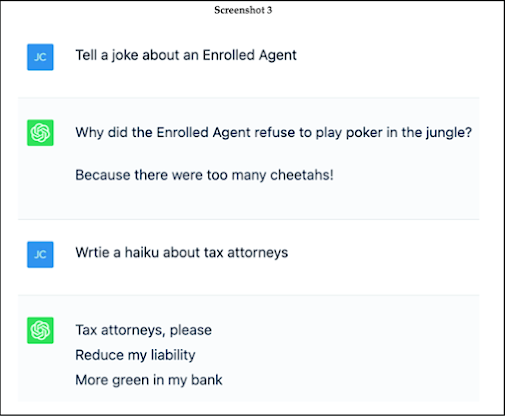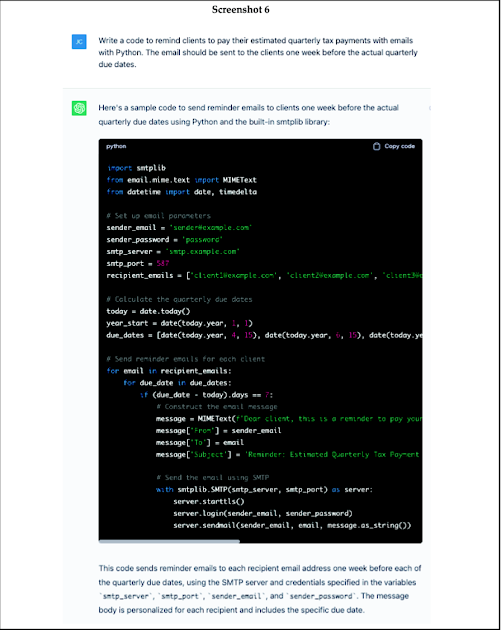Is ChatGPT Harmful or Helpful to Business Professionals? Part 1.1 The Good
I. What Is ChatGPT?
ChatGPT has taken the world by storm and become a ubiquitous hot topic since its debut about four months ago. More than 566 articles (averaging nearly 188 each month, with as many as 42 on January 31 alone) have discussed ChatGPT and its impact. As an artificial intelligence-infused chatbot released to the public November 30, 2022, by the research companyOpenAI, the GPT in ChatGPT stands for “generative pre-trained transformer” and refers to the type of language model that powers it. This unique language model was designed by Sam Altman, the main programmer and CEO of OpenAI, to interact with users in a conversational manner that mimics human response.
ChatGPT reached one million users within only five days of its release. By comparison, it took Netflix three and a half years, Facebook 10 months, and Instagram two and a half months to achieve the same feat. When asked “What are you?” ChatGPT answered the question (Screenshot 1) with the following statement: I am ChatGPT, a language model developed by OpenAI. I am a computer program designed to generate human-like responses to text-based inputs. My
purpose is to assist and engage with users
in a conversational manner, and to provide
information and assistance on a wide
range of topics.

II. Why Does ChatGPT Matter?
What sets ChatGPT apart from other predictive text systems is its ability to generate original content rather than simply provide prewritten responses or phrases. The chatbot draws from text databases including books, Wikipedia entries, articles, Reddit conversations, and other forms of writing that were provided during “training.” It’s estimated that more than 300 billion words constitute ChatGPT’s artificial “brain.” This vast quantity of text allows ChatGPT to synthesize information and produce relevant
content with incredible speed. The New York Times calls it “the best artificial intelligence chatbot ever
released to the general public.” Thus, the question that many of my readers might have is this: What effect will AIs such as ChatGPT have on current and future tax professionals and their practices?
III. The Good, the Bad, and the Ugly
A. The Good
ChatGPT can answer questions (Screenshot 2),
write essays, tell jokes, compose poetry and song
lyrics (Screenshot 3), craft recipes, produce cover
letters and memoranda (Screenshot 4), calculate
complex math problems, provide consultation on
tax issues (Screenshot 5), and code tailor-made computer programs with languages such as
Python (Screenshot 6).3
These examples are just a
handful of the more impressive capabilities that
ChatGPT possesses among the wide array of tasks
it can aid in solving. The chatbot uses advanced
natural language processing algorithms and
machine-learning techniques to understand and
respond to user queries. Such algorithms make
interacting with the AI feel natural and could
eliminate the unhelpful feeling of “talking” with a
machine that traditional AI programs elicited,
since these older AIs could not learn or evolve.
Next week, I will continue with part 2 of the ChatGPT's impact. If you enjoy my posts, please click on the blue follow button by my profile picture and comment.
Jason Chen, PhD






.JPG)

Comments
Post a Comment